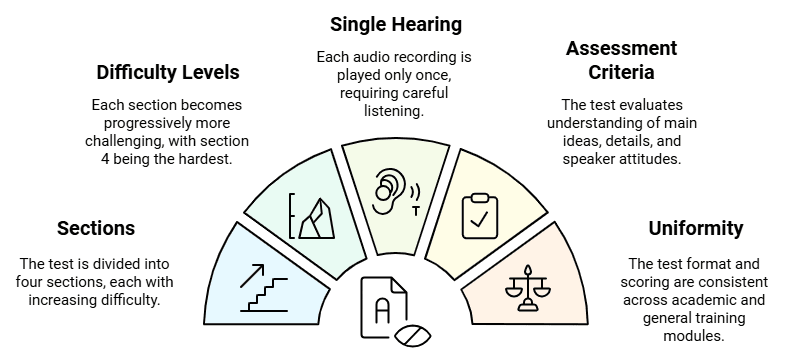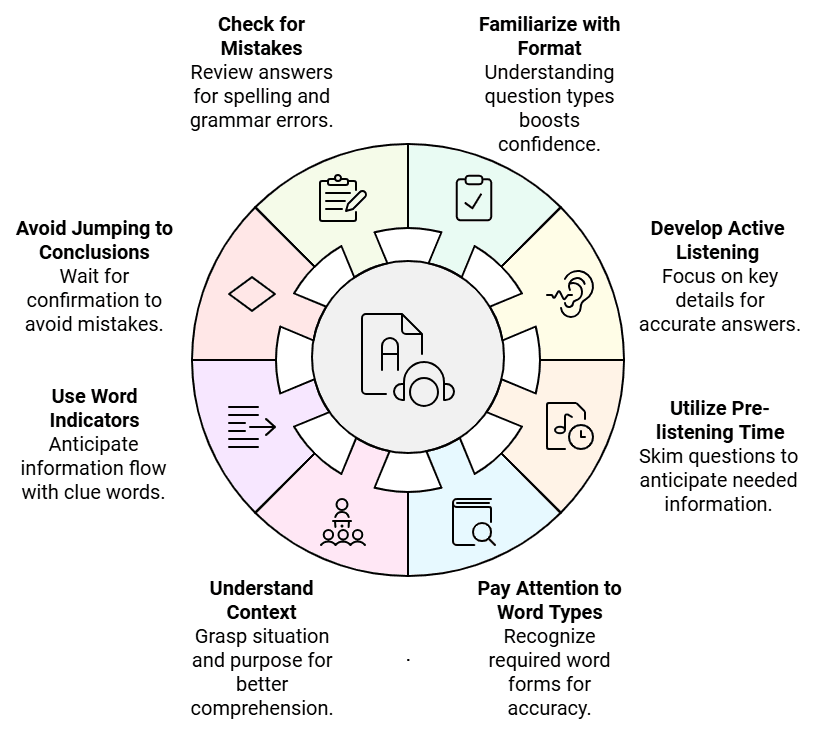Tips to Score 9 Bands in IELTS Listening | Listening for IELTS PDF Download
Introduction
Preparing for the IELTS exam can be a daunting task, but with the right strategies and techniques, you can improve your listening skills and achieve a high score. In this comprehensive guide, we will provide you with valuable tips and insights to help you excel in the listening section of the IELTS exam. From understanding the test structure to mastering key listening skills, we have got you covered. Let's dive in!
Understanding the IELTS Listening Test
Before we delve into the specific tips and techniques, it's crucial to have a clear understanding of the IELTS listening test. Here are the key points you need to know:

- The listening test consists of four sections, each with a different audio recording.
- The difficulty level increases as you progress through the sections, with section 4 being the most challenging.
- You will only hear each recording once, so it's important to listen attentively.
- The test assesses your ability to understand both main ideas and specific details, as well as your ability to recognize opinions and attitudes of speakers.
- The listening test is the same for both academic and general training modules, and it is scored in the same way.
Top Listening Tips for the IELTS Exam
Now that you have a solid understanding of the test structure, let's explore some effective listening tips to help you succeed on the IELTS exam.

Tip 1: Familiarize Yourself with the Test Format
To perform well on the IELTS listening test, it's essential to familiarize yourself with the test format. Take the time to understand the different question types, such as form completion, note completion, summary completion, sentence completion, multiple choice, diagram labeling, map labeling, and table completion. By knowing what to expect, you can approach each question type with confidence.
Tip 2: Develop Active Listening Skills
Active listening is a crucial skill for success in the IELTS listening test. Train yourself to listen for key information, such as names, dates, times, places, and numbers. Focus on extracting relevant details from the audio recording and avoid getting distracted by unnecessary information. Practicing active listening will improve your ability to comprehend and answer questions accurately.
Tip 3: Take Advantage of Pre-listening Time
Before each section of the listening test begins, you will have some pre-listening time to read the questions. Use this time wisely to skim through the questions and underline keywords or key phrases. This will help you anticipate the information you need to listen for during the audio recording.
Tip 4: Pay Attention to Word Types
When listening to the audio recording, pay attention to the word types required for each question. Is it a noun, verb, adverb, or adjective? This awareness will guide you in selecting the correct word form while listening and improve your accuracy in answering questions.
Tip 5: "Plug in" the Situation
Listen carefully to the introduction before each part of the test. It provides valuable information about the situation, the speakers, and the purpose of the conversation or lecture. Understanding the context will make it easier for you to follow the recording and comprehend the content.
Tip 6: Use Words-Indicators to Anticipate Information
Words-indicators, such as "however," "but," "then," and "finally," can give you clues about the speaker's next point or the direction of the conversation. Pay attention to these words and use them to anticipate the information that will follow.
Tip 7: Avoid Jumping to Conclusions
While listening to the audio recording, avoid jumping to conclusions too quickly. Sometimes, information is corrected or clarified later in the conversation. Be patient and wait for confirmation before finalizing your answer. Double-checking your understanding will help you avoid unnecessary mistakes.
Tip 8: Check for Silly Mistakes
After completing each section, take a few moments to review your answers. Pay close attention to spelling, plurals, and word forms. Even if your answer is correct, a small mistake in spelling or grammar can cost you valuable points. Take the time to ensure the accuracy of your answers.
Tip 9: Transfer Answers Accurately
In the final 10 minutes of the test, you will be given time to transfer your answers from the question paper to the answer sheet. Be careful to transfer your answers to the correct numbered spaces, as mistakes in numbering can lead to incorrect answers. Double-checking your answers during this time will help you avoid any transfer errors.
Tip 10: Don't Leave Blank Answers
Even if you are unsure of an answer, it's better to make an educated guess than to leave the answer blank. You will not lose marks for incorrect answers, so take a guess based on the information you have gathered. Remember, you have nothing to lose and potentially everything to gain.
|
70 videos|39 docs
|
FAQs on Tips to Score 9 Bands in IELTS Listening - Listening for IELTS
| 1. What is the format of the IELTS Listening Test? |  |
| 2. How can I improve my listening skills for the IELTS exam? |  |
| 3. What are some common question types in the IELTS Listening Test? |  |
| 4. How is the IELTS Listening Test scored? |  |
| 5. What should I do if I miss an answer during the listening test? |  |

















